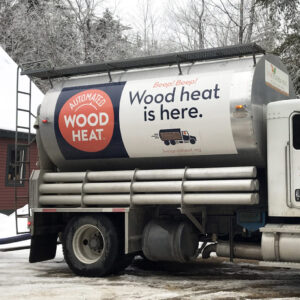Wood Pellet Heat is 54% carbon better than fossil fuels
An independent study of the life-cycle impact of using wood pellets in the Northern Forest instead of oil and propane for heat has shown that switching to wood pellets immediately reduces greenhouse gas emissions by 54%.
The analysis accounts for all emissions generated by creating the pellets – from fuel-sourcing through processing to final use.
The Northeast consumes an astonishing 84% of the entire U.S. supply of home heating oil—5.5 billion gallons annually. Buying this oil sends $10 billion out of the region each year.
Substituting sustainably produced heat from wood for even a portion of this oil will lower the greenhouse gas impact of heating our homes and businesses. It further benefits the Northern Forest region by reducing its reliance on imported oil, strengthening the economic basis for sustainable forestry in the region, and creating new economic opportunities for Northern Forest communities.
State and federal energy policy is focused predominantly on transportation fuels and electricity, not on heating. The Center works with partners across the region and beyond to identify and advocate for ways that federal and state energy policy can support the region in realizing this potential. These policies include state pellet boiler rebate programs and federal tax credits, for example.
Read more about the study here: Greenhouse Gases and Wood Pellet Heat






